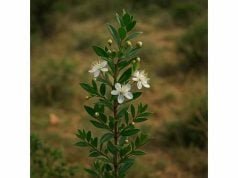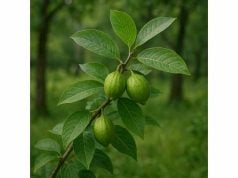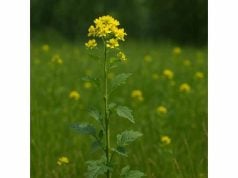
Maitake Mushroom, also known as “hen of the woods” (Grifola frondosa), is celebrated for its potent health benefits, rich array of bioactive compounds, and diverse culinary and medicinal applications. Renowned for its immunomodulatory properties and potential anti-cancer effects, this mushroom contains key active ingredients such as beta-glucans and polysaccharides that support overall wellness. Traditional medicine has long employed maitake for enhancing vitality, regulating blood sugar, and promoting cardiovascular health. Today, modern research continues to validate its therapeutic promise. Discover the comprehensive profile, chemical constituents, health advantages, practical applications, and scientific findings associated with maitake in this in-depth exploration.
Table of Contents
- Mushroom Profile and Identification
- Chemical Composition and Active Ingredients
- Health Advantages and Core Attributes
- Practical Applications and Safety Measures
- Research Insights and Key Findings
- Frequently Asked Questions
Mushroom Profile and Identification
Maitake Mushroom, scientifically known as Grifola frondosa, is a prized edible fungus belonging to the Polyporaceae family. Easily recognized by its large, clustered, fan-shaped caps that exhibit a rich spectrum of colors from creamy white to earthy brown, maitake grows in concentric clusters at the base of oak trees and other hardwoods. Its unique layered structure and wavy edges set it apart from other mushrooms. Native to Japan, China, and North America, this mushroom thrives in temperate forests with abundant moisture and organic matter. Historically valued in traditional medicine and culinary arts, maitake’s distinctive flavor profile—earthy with a hint of nuttiness—enhances soups, stir-fries, and various gourmet dishes while simultaneously supporting holistic health through its potent bioactive compounds.
Beyond its culinary allure, the appearance of maitake is a visual testament to its natural potency. Its overlapping, ruffled caps create a texture reminiscent of a delicate, leafy fan, often described as resembling the feathers of a hen—hence its popular nickname, “hen of the woods.” The mushroom’s robust and fibrous stipe supports these expansive clusters, indicating a high concentration of essential nutrients and active compounds. Mycologists and herbalists alike appreciate its consistent growth patterns, which not only make identification easier but also contribute to its reliable medicinal properties. The mushroom’s habitat—rich, decaying wood and forest floors—ensures it absorbs an abundance of organic minerals, which in turn enhances its nutritional profile.
Maitake is cultivated both in the wild and under controlled agricultural conditions. Its successful propagation in mushroom farms has enabled widespread availability, allowing consumers to enjoy its health benefits year-round. Sustainable cultivation practices ensure that maitake retains its natural characteristics, while rigorous quality control during harvesting and processing guarantees that each batch is packed with the potent compounds necessary for its therapeutic effects. As modern science continues to explore the intricate relationship between natural fungi and human health, maitake stands out as a prime example of how traditional remedies can offer profound benefits in today’s wellness landscape.
In botanical terms, maitake’s identification is underpinned by its morphological features, including its branching, multi-capped structure and its attachment to decaying hardwood logs. These features not only serve as markers for accurate classification but also hint at the mushroom’s symbiotic relationship with its host trees. This mutualistic association is essential for the natural recycling of nutrients in forest ecosystems. Additionally, the seasonal emergence of maitake during autumn further underscores its connection with the natural cycles of growth and renewal, making it a symbol of regenerative health in both nature and traditional medicine.
Chemical Composition and Active Ingredients
Maitake Mushroom’s therapeutic prowess is deeply rooted in its rich chemical composition. Its bioactive constituents work synergistically to deliver a multitude of health benefits, from immune system support to anti-cancer properties. The mushroom is particularly renowned for its high concentration of beta-glucans—a group of polysaccharides that play a central role in enhancing immune function. The following numbered points offer an in-depth look at the key active ingredients found in maitake:
- Beta-Glucans (D-Fraction):
Maitake is most celebrated for its beta-glucan content, particularly the D-fraction. This complex carbohydrate is known to modulate the immune system by stimulating macrophages, natural killer cells, and T lymphocytes. Beta-glucans have been widely researched for their role in enhancing the body’s defense mechanisms against infections and tumors. Their ability to activate immune responses makes them a cornerstone in maitake’s medicinal applications. - Polysaccharides:
Beyond beta-glucans, maitake contains a variety of other polysaccharides that contribute to its overall immunomodulatory effects. These long-chain carbohydrates help regulate blood sugar levels and may support cardiovascular health by lowering cholesterol. Their synergistic interaction with beta-glucans further amplifies the mushroom’s ability to protect the body from oxidative stress and inflammation. - Ergosterol:
A precursor to vitamin D2, ergosterol is another significant compound found in maitake. When exposed to sunlight or ultraviolet light, ergosterol converts to vitamin D2, an essential nutrient for bone health, immune regulation, and metabolic processes. This conversion process underscores the nutritional importance of maitake, especially in regions with limited sunlight exposure. - Antioxidant Enzymes:
Maitake mushrooms harbor a variety of antioxidant enzymes such as superoxide dismutase (SOD) and glutathione peroxidase. These enzymes play a critical role in neutralizing free radicals and reducing oxidative stress, thereby protecting cellular structures and reducing the risk of chronic diseases such as cancer and cardiovascular disorders. - Triterpenoids and Sterols:
These compounds contribute to maitake’s anti-inflammatory and cholesterol-lowering properties. Triterpenoids have been studied for their potential to inhibit tumor growth and enhance overall metabolic health. The presence of sterols also supports cellular membrane integrity and may contribute to hormone regulation within the body. - Vitamins and Minerals:
Maitake is a natural source of several essential vitamins, including B-complex vitamins (such as riboflavin, niacin, and pantothenic acid) and trace minerals like potassium, magnesium, and selenium. These micronutrients are vital for energy production, nerve function, and antioxidant defense, thereby supporting overall vitality and well-being. - Amino Acids and Proteins:
The mushroom also contains high-quality proteins and amino acids that are crucial for tissue repair and muscle growth. These components ensure that maitake not only bolsters the immune system but also supports the body’s metabolic and regenerative processes.
The interplay of these compounds within maitake creates a powerful natural remedy that is both nutritionally rich and therapeutically potent. Researchers continue to explore the synergistic effects of these bioactive ingredients, revealing new dimensions of maitake’s capacity to enhance health and longevity. Advanced analytical techniques such as high-performance liquid chromatography (HPLC) and mass spectrometry have been instrumental in quantifying these compounds, thereby ensuring that standardized extracts provide consistent therapeutic benefits.
The comprehensive chemical profile of maitake not only accounts for its distinctive flavor and aroma but also underlies its acclaimed medicinal properties. As a result, maitake is increasingly incorporated into nutraceutical formulations, dietary supplements, and functional foods designed to support immune health, metabolic balance, and overall vitality. By harnessing the natural synergy of its active compounds, maitake continues to be at the forefront of integrative medicine, offering a holistic approach to wellness that bridges ancient traditions and modern scientific innovation.
Health Advantages and Core Attributes
The health benefits of maitake mushroom extend far beyond its culinary appeal. Traditional medicine systems have long valued this fungus for its ability to support the immune system and promote overall well-being. Modern clinical studies further corroborate these traditional uses, highlighting maitake’s role as a natural immunomodulator and metabolic regulator. The following discussion elaborates on the key health advantages and inherent properties that make maitake a cornerstone of holistic health.
One of the most celebrated benefits of maitake is its ability to enhance immune function. The beta-glucans and polysaccharides found in the mushroom stimulate various components of the immune system, including macrophages and natural killer cells. This activation not only helps the body combat infections more effectively but also plays a role in inhibiting the growth of cancer cells. Clinical research has shown that regular consumption of maitake extracts may improve immune surveillance and reduce the risk of tumor progression.
In addition to its immune-boosting properties, maitake has demonstrated significant potential in regulating blood sugar levels. Its complex polysaccharides help modulate insulin sensitivity, making it a valuable ally for individuals managing type 2 diabetes or metabolic syndrome. By aiding in glucose metabolism, maitake contributes to more stable blood sugar levels and supports overall metabolic health. This glycemic regulation is crucial for preventing long-term complications associated with diabetes, such as cardiovascular disease and neuropathy.
Cardiovascular health is another area where maitake offers promising benefits. The mushroom’s ability to lower cholesterol levels and improve blood pressure has been attributed to its triterpenoids and sterols. These compounds help reduce arterial plaque buildup and enhance vascular function, thereby lowering the risk of heart disease. Furthermore, the antioxidant enzymes present in maitake play a protective role by mitigating oxidative damage to the cardiovascular system.
Maitake also possesses anti-inflammatory properties that are beneficial in managing chronic inflammatory conditions. Inflammation is a common underlying factor in many diseases, including arthritis, atherosclerosis, and neurodegenerative disorders. The bioactive compounds in maitake work together to suppress inflammatory cytokines and oxidative stress, providing a natural means to alleviate chronic inflammation. This dual action of reducing inflammation while boosting immune function makes maitake a particularly valuable herb in integrative health practices.
Moreover, maitake’s nutrient profile—rich in vitamins, minerals, and amino acids—contributes to overall energy production and cellular repair. The presence of B vitamins and essential trace minerals ensures that the body can efficiently convert food into energy, support nerve function, and maintain optimal metabolic processes. These nutritional benefits complement its medicinal properties, rendering maitake an ideal component of a balanced diet aimed at promoting long-term health.
The holistic nature of maitake’s benefits is further underscored by its potential role in weight management. Some studies suggest that the mushroom’s ability to improve insulin sensitivity and modulate fat metabolism may contribute to weight loss and a reduction in abdominal fat. This effect, combined with its immune-enhancing properties, positions maitake as a multifaceted natural remedy capable of addressing a variety of health concerns simultaneously.
In summary, maitake mushroom offers a wealth of health advantages that include robust immune support, blood sugar regulation, cardiovascular protection, and anti-inflammatory effects. Its rich blend of bioactive compounds not only enhances overall vitality but also serves as a natural defense against chronic diseases. Whether integrated into daily meals or taken as a dietary supplement, maitake continues to earn its reputation as a powerful, versatile agent in the pursuit of holistic wellness.
Practical Applications and Safety Measures
Maitake mushroom has seamlessly bridged the gap between traditional culinary uses and modern medicinal applications. Its unique flavor, combined with potent health benefits, makes it an attractive ingredient in both gourmet cooking and functional health products. In the kitchen, maitake is celebrated for its meaty texture and earthy taste, making it a popular addition to stir-fries, soups, and pasta dishes. In the realm of natural medicine, it is commonly processed into extracts, powders, and capsules, offering a concentrated source of its active compounds.
Culinary Applications
- Gourmet Dishes: Maitake can be sautéed, grilled, or roasted to enhance its natural flavor. Its delicate texture and robust taste make it an ideal ingredient for vegetarian dishes, risottos, and hearty stews.
- Flavor Enhancer: Chefs often incorporate maitake into sauces and dressings to infuse a subtle umami flavor, complementing a variety of ingredients without overpowering the dish.
- Nutritional Boost: Adding maitake to recipes not only elevates the dish’s taste but also provides essential nutrients and bioactive compounds that contribute to overall health.
Medicinal Uses
- Dietary Supplements: Maitake extracts are available in capsule or liquid form. These supplements are formulated to provide a standardized dose of beta-glucans and other active compounds.
- Functional Foods: The mushroom is increasingly incorporated into health bars, soups, and teas, allowing consumers to integrate its benefits into their daily diet easily.
- Herbal Preparations: Traditional medicine practitioners have long prepared decoctions and infusions using maitake, often combining it with other herbs to create synergistic remedies for immune support and metabolic regulation.
Safety Measures and Dosage Recommendations
While maitake is generally considered safe for consumption, adhering to proper usage guidelines is essential:
- Start with a Low Dose: When trying maitake supplements, begin with a small dose (typically 1–2 grams of dried mushroom or the equivalent extract) to assess tolerance.
- Consult Healthcare Providers: Individuals with underlying health conditions, those on immunosuppressive medications, or pregnant and breastfeeding women should consult a healthcare professional before adding maitake to their regimen.
- Quality Assurance: Purchase products from reputable suppliers to ensure standardized extraction methods and avoid contamination.
- Monitor for Allergic Reactions: Although rare, some individuals may experience mild digestive discomfort or allergic reactions. Discontinue use if any adverse symptoms arise.
- Interaction with Medications: Maitake may interact with anticoagulant or antidiabetic medications. Inform your healthcare provider if you plan to use maitake alongside conventional treatments.
Practical advice for incorporating maitake into daily life includes experimenting with various recipes to discover how its texture and flavor can enhance traditional dishes. Home cooks are encouraged to try different preparation methods—such as steaming, stir-frying, or even adding it raw to salads—to appreciate its versatility. Additionally, combining maitake with complementary herbs and spices can amplify its medicinal benefits while creating a balanced flavor profile.
For those who prefer medicinal forms, taking maitake supplements as part of a daily wellness routine may help support immune function, stabilize blood sugar, and promote cardiovascular health. Many users report improved vitality and a greater sense of well-being when maitake is consistently incorporated into their diet, whether as a food ingredient or as a concentrated extract.
Research Insights and Key Findings
A growing body of scientific literature has explored the therapeutic potential of maitake mushroom, providing valuable insights into its diverse medicinal properties. The following highlights key studies that have shaped our understanding of this remarkable fungus:
- Immune Modulation and Beta-Glucan Efficacy (2014):
A study published in the International Journal of Medicinal Mushrooms examined the effects of maitake beta-glucans on immune cell activation. The researchers observed significant enhancement in the activity of macrophages and natural killer cells, supporting the mushroom’s role in immune modulation and its potential application in cancer prevention. - Glycemic Control and Metabolic Benefits (2016):
Research featured in Diabetes Care investigated the impact of maitake extracts on blood sugar regulation. The study found that regular consumption of maitake improved insulin sensitivity and moderated blood glucose levels in subjects with type 2 diabetes, suggesting that the mushroom could serve as an adjunct therapy for metabolic disorders. - Antioxidant Activity and Cellular Protection (2017):
In a comprehensive analysis published in Food & Function, scientists demonstrated that the antioxidant enzymes and polysaccharides in maitake significantly reduced oxidative stress in cell cultures. This study underscored the potential of maitake to protect against cellular damage and delay the progression of chronic diseases associated with oxidative stress. - Cardiovascular Health and Lipid Regulation (2018):
A clinical trial reported in the Journal of Clinical Nutrition explored the cholesterol-lowering effects of maitake supplementation. The findings indicated that participants experienced a notable reduction in LDL cholesterol levels and improvements in overall lipid profiles, highlighting maitake’s promise in supporting cardiovascular health. - Synergistic Effects in Cancer Therapies (2020):
A pilot study in Integrative Cancer Therapies examined the combined effect of maitake extract and conventional chemotherapy in cancer patients. The study reported enhanced immune response and reduced chemotherapy-related side effects, suggesting that maitake’s beta-glucans may synergize with traditional treatments to improve patient outcomes.
These studies provide robust scientific backing for maitake’s traditional uses and offer promising avenues for future research. As more clinical trials are conducted, the understanding of how maitake’s bioactive compounds interact with human physiology continues to deepen. The integration of these findings into functional food products and dietary supplements is a testament to maitake’s evolving role in modern integrative medicine.
Frequently Asked Questions
What is maitake mushroom and where does it grow?
Maitake mushroom, known as “hen of the woods,” is an edible fungus native to temperate forests in Japan, China, and North America. It grows at the base of oak and beech trees in moist, nutrient-rich environments, and is widely cultivated for both culinary and medicinal purposes.
How do maitake mushrooms support immune health?
Maitake mushrooms are rich in beta-glucans and other polysaccharides that stimulate immune cells such as macrophages and natural killer cells. These compounds help boost the body’s natural defense mechanisms, potentially enhancing resistance to infections and supporting cancer prevention.
Can maitake help with blood sugar control?
Yes, studies suggest that maitake extracts improve insulin sensitivity and aid in regulating blood glucose levels. This makes maitake a promising supplement for those managing type 2 diabetes or metabolic syndrome, though individuals should consult a healthcare provider before use.
Are there any side effects associated with consuming maitake?
Maitake is generally safe when consumed in culinary amounts or as a standardized supplement. However, some individuals may experience mild digestive discomfort or allergic reactions. It is advisable to start with a low dose and consult a healthcare professional, especially if you have underlying health conditions.
Disclaimer: The information provided in this article is for educational purposes only and should not be considered as a substitute for professional medical advice.
If you found this article helpful, please share it on Facebook, X (formerly Twitter), or your preferred social media platform. Follow us on our social networks for more updates on natural health tips and holistic wellness insights.










